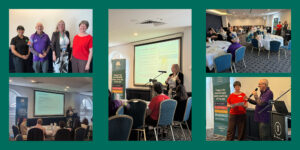Have you ever felt THAT stressed or strung out that you can feel the tension trying to leave your body? You know what I mean – that feeling of wanting to lash out or move your body in some way?
Well that feeling actually harks back to a natural response to stress or trauma where we would involuntarily tremble and shake when faced with a stressful or traumatic situation. In the animal kingdom, animals shake instinctively to release tension after a life threatening event.
Unfortunately, over time we have overridden this natural response with our cultural norms to it still and stay in control of ourselves. This has left us with no natural way to rid ourselves of the internal pressure we feel.
But all is not lost. Thanks to Dr David Berceli, he has created and introduced the world to a stress-busting technique called Tension & Trauma Release Exercise (TRE).
What is TRE?
TRE is a set of deliberate trembling and shaking exercises and is perfect for those of us who don’t want to talk about our issues yet, but want to feel better.
What are the benefits of TRE?
TRE:
- helps people sleep better;
- reduces lower back, shoulder and neck pain;
- decreases anxiety and worry; and
- increases emotional resilience.
The list goes on!
The best part is, it’s relatively easy to do this at home. Start out by lying comfortably on your back (or you can sit or stand). Begin by gently shaking smaller muscles first (hands and feet) and move on to larger muscles by shaking the legs and hips. Small trembles or bigger ones are both beneficial. The trick is to be aware of how your body wants to shake and follow that.
Still need more information? In the clip below, founder David Berceli gives a brief explanation of what TRE is and how it works.
Alternatively, you may want to attend a TRE workshop to be shown the skills that will last you a lifetime. For more information, visit their website here: www.treaustralia.com.au.
Arafmi Ltd is a not for profit community organisation that has been providing quality services to the Queensland community for over 40 years. Our focus is to enhance the wellbeing of people with mental illness, their families, carers and volunteers.



